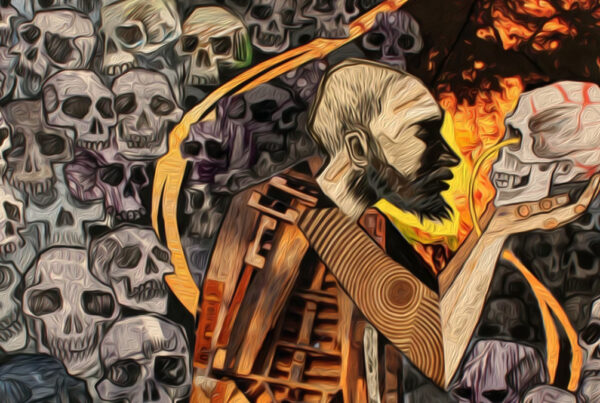Book of Hosea
Chapter 13
As we approach the end of Hosea’s narrative, you may have noticed a shift in the text. We see several and varied recollections of the history of the Israelites, both what God had done in the past and how they had responded. Overt references to “prostitution” are conspicuously absent in these closing paragraphs. The gravity of the Israelites’ idol worship had not changed, nor God’s feelings about it (1-3). He had, in effect, already clearly made His case about this nefarious practice and its ramifications.
In addition to numerous references to Jacob, yesterday’s reading also included reminders of the Israelites’ time in slavery and how God delivered them. Repeated again in today’s text, this saving aspect of the Lord had long been an integral part of His name: “I am the Lord your God who brought you out of Egypt…” (12:9, 13:4) This amazing series of events – leaving Egypt, parting the sea, guiding them with a cloud by day and a pillar of fire by night, providing food for survival, and more – this amazing series of events became wrapped up in the very name of God. His name should have become to the Israelites a specific reminder of His provision for them and of His power to save.
God also reminded them of a rather prickly point in their history. During the waning years of the Judges – when the godly man Samuel was their leader and prophet –, they looked around at their neighbors and decided that, instead of following God directly, they wanted a king. At the time, the Lord made Himself very clear through Samuel (who was very upset by the request) that He was opposed to this monarchy. Again, be careful what you ask for… God let them have it. (For further reading, see 1 Samuel 8 and the Journey Archives for that text.) Where was that king to save them now? (10-11) He could not do it. Even so, what is utterly jaw-dropping about God is that, even though He knew this was a bad idea and would totally mess them up (just re-read Hosea), He also understood that a monarchy was a structure they could grasp, and He would use that in His plan to save them. Only the Lord can redeem a bad idea and turn it around. As such, He turned to the man David who loved Him with all of his heart and promised him that his descendant would always sit on the throne; this descendant would lead the people forever.
If we include yesterday’s text with this historical review, we also bring in Jacob, his deceiving ways, his wrestle with God and his transformation. In that very struggling with God the Lord let Jacob win; He essentially became weak in order to allow Jacob to overcome Him (4). God spared him that night, but forever after, he limped. In Jacob’s own weakness, he was transformed. (Genesis 32:22-32)
Interspersed with these historical references are various images of life and death, some quite brutal. A picture of passing away immediately follows God’s reproach about idol worship: “Therefore they will be like the morning mist, like the early dew that disappears, …” (3) The last time we read this ephemeral image it described the emptiness of the Israelites’ love for God. (6:4) Understood in the tidings of Assyria’s conquest were warnings of a gruesome battle. The references to wild animals evoke the violent ends to come. Again, after the strongly lyrical language comes the explicit, “You are destroyed, O Israel, because you are against me, against your helper.” (9) Their love for God had died away and soon their lives would, too. “You are destroyed, O Israel…”
Interestingly, the references to life actually come after the images of death. And they are unusual. We glimpse childbirth, but not the joy. Instead, we see pain and, in a very strange picture, see a stubborn baby – the verse might also suggest not very clever – refusing to come out of the womb (13).
Birth. Death. Love. Sin. King. Provider. Helper. Savior. They all come together in the picture of God allowing Himself to be overcome, in humbling Himself, in letting Himself become weak. Indeed, verse 14 makes perfect sense: “I will ransom them from the power of the grave; I will redeem them from death. Where, O death, are your plagues? Where, O grave, is your destruction?” Everything comes together in the hope that the Lord gives in the death and resurrection of Jesus. Amen.
Key Verse(s):
“You are destroyed, O Israel, because you are against me, against your helper. … I will ransom them from the power of the grave; I will redeem them from death. Where, O death, are your plagues? Where, O grave, is your destruction?” ~ Hosea 13:9,14
Questions to ponder:
- What are other Biblical examples of God saving people? Taking care of them? Providing for them?
- What ways can you retain lessons God has taught you from your past? Consider keeping a journal for one month (or longer if you can). What other ideas do you have?


